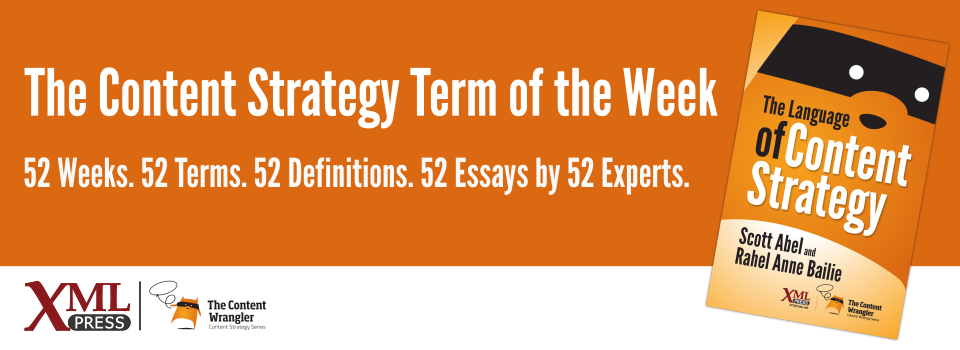What is it?
Attributes of content you can use to structure, semantically define, and target content.
Why is it important?
Extends the capabilities of content, making it more powerful and effecting efficient operation in a data-driven world.
Why does a content strategist need to know this?
Metadata can take many forms. In the simplest terms, metadata describes attributes or constraints of a content field. Metadata provides additional context or information that tells software how to handle content. Metadata should be used in conjunction with business rules to deploy and design content appropriately.
For example, a headline field might allow 64 characters, and a short headline field might allow 32. Defining those constraints in metadata can help editors and designers craft the right kind of content and use the right containers to ensure suitability for the channels that display the content.
Content may relate to one or more subjects, and you can use metadata to show those relationships. For instance, a fan magazine could use metadata to identify pop stars named in a given piece of content. If their website has a business rule calling for all video content related to this year’s biggest pop star to be featured on the home page, the metadata can be used to find content that fits that requirement.
Metadata describes the content itself, but not how that content should be displayed. Imagine the confusion if your metadata included the option to tag a video as “featured.” What happens when you tag more than one video in that way? What happens if you forget which one you tagged before? Much better for your metadata to include dates, times, subjects, content types, and constraints—and for you to build display and presentation rules that use that metadata.
A metadata standard like Dublin Core may simplify your work and make your content more extensible. However, many people create their own metadata, customized for internal use.
Metadata is sometimes revealed to users (in faceted search, for instance), but most often, it’s the behind-the-scenes workhorse that makes your life easier.

